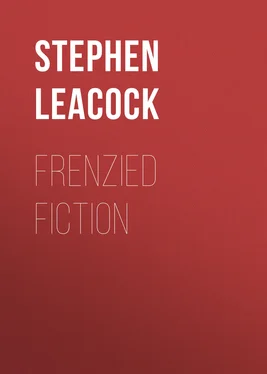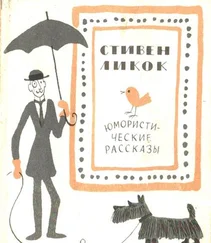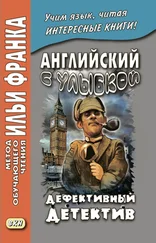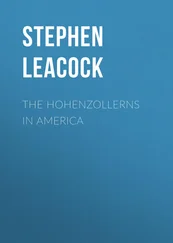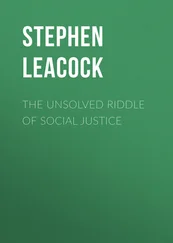Stephen Leacock - Frenzied Fiction
Здесь есть возможность читать онлайн «Stephen Leacock - Frenzied Fiction» — ознакомительный отрывок электронной книги совершенно бесплатно, а после прочтения отрывка купить полную версию. В некоторых случаях можно слушать аудио, скачать через торрент в формате fb2 и присутствует краткое содержание. Жанр: foreign_humor, Юмористические книги, foreign_antique, на английском языке. Описание произведения, (предисловие) а так же отзывы посетителей доступны на портале библиотеки ЛибКат.
- Название:Frenzied Fiction
- Автор:
- Жанр:
- Год:неизвестен
- ISBN:нет данных
- Рейтинг книги:4 / 5. Голосов: 1
-
Избранное:Добавить в избранное
- Отзывы:
-
Ваша оценка:
- 80
- 1
- 2
- 3
- 4
- 5
Frenzied Fiction: краткое содержание, описание и аннотация
Предлагаем к чтению аннотацию, описание, краткое содержание или предисловие (зависит от того, что написал сам автор книги «Frenzied Fiction»). Если вы не нашли необходимую информацию о книге — напишите в комментариях, мы постараемся отыскать её.
Frenzied Fiction — читать онлайн ознакомительный отрывок
Ниже представлен текст книги, разбитый по страницам. Система сохранения места последней прочитанной страницы, позволяет с удобством читать онлайн бесплатно книгу «Frenzied Fiction», без необходимости каждый раз заново искать на чём Вы остановились. Поставьте закладку, и сможете в любой момент перейти на страницу, на которой закончили чтение.
Интервал:
Закладка:
“Notice that man at the second table,” he would whisper across to me. “He’s worth all the way to ten millions: made it in Government contracts; they tried to send him to the penitentiary last fall but they can’t get him—he’s too smart for them! I’ll introduce you to him presently. See the man with him? That’s his lawyer, biggest crook in America, they say; we’ll meet him after dinner.” Then he would suddenly break off and exclaim: “Egad, sir, there’s a fine bunch of them,” as another bevy of girls came trooping out upon the stage.
“I wonder,” I murmured, “if there is nothing left of him but this? Has all the fine old spirit gone? Is it all drowned out in wine and suffocated in the foul atmosphere of luxury?”
Then suddenly I looked up at my companion, and I saw to my surprise that his whole face and manner had altered. His hand was clenched tight on the edge of the table. His eyes looked before him—through and beyond the riotous crowd all about him—into vacancy, into the far past, back into memories that I thought forgotten. His face had altered. The senile, leering look was gone, and in its place the firm-set face of the Knickerbocker of a century ago.
He was speaking in a strange voice, deep and strong.
“Listen,” he said, “listen. Do you hear it—there—far out at sea—ships’ guns—listen—they’re calling for help—ships’ guns—far out at sea!” He had clasped me by the arm. “Quick, to the Battery, they’ll need every man to-night, they’ll—”
Then he sank back into his chair. His look changed again. The vision died out of his eyes.
“What was I saying?” he asked. “Ah, yes, this old brandy, a very special brand. They keep it for me here, a dollar a glass. They know me here,” he added in his fatuous way. “All the waiters know me. The headwaiter always knows me the minute I come into the room—keeps a chair for me. Now try this brandy and then presently we’ll move on and see what’s doing at some of the shows.”
But somehow, in spite of himself, my companion seemed to be unable to bring himself fully back into the consciousness of the scene before him. The far-away look still lingered in his eyes.
Presently he turned and spoke to me in a low, confidential tone.
“Was I talking to myself a moment ago?” he asked. “Yes? Ah, I feared I was. Do you know—I don’t mind telling it to you—lately I’ve had a strange, queer feeling that comes over me at times, as if something were happening —something, I don’t know what. I suppose,” he continued, with a false attempt at resuming his fatuous manner, “I’m going the pace a little too hard, eh! Makes one fanciful. But the fact is, at times”—he spoke gravely again—“I feel as if there were something happening, something coming.”
“Knickerbocker,” I said earnestly, “Father Knickerbocker, don’t you know that something is happening, that this very evening as we are sitting here in all this riot, the President of the United States is to come before Congress on the most solemn mission that ever—”
But my speech fell unheeded. Knickerbocker had picked up his glass again and was leering over it at a bevy of girls dancing upon the stage.
“Look at that girl,” he interrupted quickly, “the one dancing at the end. What do you think of her, eh? Some peach!”
Knickerbocker broke off suddenly. For at this moment our ears caught the sound of a noise, a distant tumult, as it were, far down the street and growing nearer. The old man had drawn himself erect in his seat, his hand to his ear, listening as he caught the sound.
“Out on the Broad Way,” he said, instinctively calling it by its ancient name as if a flood of memories were upon him. “Do you hear it? Listen—listen—what is it? I’ve heard that sound before—I’ve heard every sound on the Broad Way these two centuries back—what is it? I seem to know it!”
The sound and tumult as of running feet and of many voices crying came louder from the street. The people at the tables had turned in their seats to listen. The music of the orchestra had stopped. The waiters had thrown back the heavy curtains from the windows and the people were crowding to them to look out into the street. Knickerbocker had risen in his place, his eyes looked toward the windows, but his gaze was fixed on vacancy as with one who sees a vision passing.
“I know the sound,” he cried. “I see it all again. Look, can’t you see them? It’s Massachusetts soldiers marching South to the war—can’t you hear the beating of the drums and the shrill calling of the fife—the regiments from the North, the first to come. I saw them pass, here where we are sitting, sixty years ago—”
Knickerbocker paused a moment, his hand still extended in the air, and then with a great light upon his face he cried:
“I know it now! I know what it meant, the feeling that has haunted me—the sounds I kept hearing—the guns of the ships at sea and the voices calling in distress! I know now. It means, sir, it means—”
But as he spoke a great cry came up from the street and burst in at the doors and windows, echoing in a single word:
WAR! WAR! The message of the President is for WAR!
“War!” cried Father Knickerbocker, rising to his full height, stern and majestic and shouting in a stentorian tone that echoed through the great room. “War! War! To your places, every one of you! Be done with your idle luxury! Out with the glare of your lights! Begone you painted women and worthless men! To your places every man of you! To the Battery! Man the guns! Stand to it, every one of you for the defence of America—for our New York, New York—”
Then, with the sound “New York, New York” still echoing in my ears I woke up. The vision of my dream was gone. I was still on the seat of the car where I had dozed asleep, the book upon my knee. The train had arrived at the depot and the porters were calling into the doorway of the car: “New York! New York!”
All about me was the stir and hubbub of the great depot. But loud over all it was heard the call of the newsboys crying “WAR! WAR! The President’s message is for WAR! Late extra! WAR! WAR!”
And I knew that a great nation had cast aside the bonds of sloth and luxury, and was girding itself to join in the fight for the free democracy of all mankind.
III. The Prophet in Our Midst
The Eminent Authority looked around at the little group of us seated about him at the club. He was telling us, or beginning to tell us, about the outcome of the war. It was a thing we wanted to know. We were listening attentively. We felt that we were “getting something.”
“I doubt very much,” he said, “whether Downing Street realizes the enormous power which the Quai d’Orsay has over the Yildiz Kiosk.”
“So do I,” I said, “what is it?”
But he hardly noticed the interruption.
“You’ve got to remember,” he went on, “that, from the point of view of the Yildiz, the Wilhelmstrasse is just a thing of yesterday.”
“Quite so,” I said.
“Of course,” he added, “the Ballplatz is quite different.”
“Altogether different,” I admitted.
“And mind you,” he said, “the Ballplatz itself can be largely moved from the Quirinal through the Vatican.”
“Why of course it can,” I agreed, with as much relief in my tone as I could put into it. After all, what simpler way of moving the Ballplatz than that?
The Eminent Authority took another sip at his tea, and looked round at us through his spectacles.
It was I who was taking on myself to do most of the answering, because it was I who had brought him there and invited the other men to meet him. “He’s coming round at five,” I had said, “do come and have a cup of tea and meet him. He knows more about the European situation and the probable solution than any other man living.” Naturally they came gladly. They wanted to know—as everybody wants to know—how the war will end. They were just ordinary plain men like myself.
Читать дальшеИнтервал:
Закладка:
Похожие книги на «Frenzied Fiction»
Представляем Вашему вниманию похожие книги на «Frenzied Fiction» списком для выбора. Мы отобрали схожую по названию и смыслу литературу в надежде предоставить читателям больше вариантов отыскать новые, интересные, ещё непрочитанные произведения.
Обсуждение, отзывы о книге «Frenzied Fiction» и просто собственные мнения читателей. Оставьте ваши комментарии, напишите, что Вы думаете о произведении, его смысле или главных героях. Укажите что конкретно понравилось, а что нет, и почему Вы так считаете.
